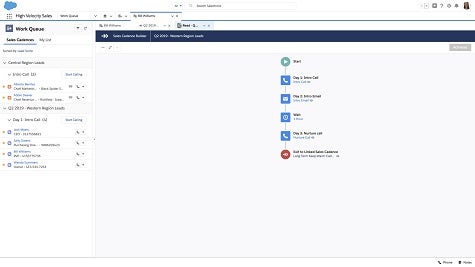Salesforce today unfurled additions to Salesforce Sales Cloud with the promise to increase the productivity of sales people by employing the company’s Einstein artificial intelligence (AI) engines to surface more actionable intelligence within the application.
New modules being added to the software-as-a-service (SaaS) application include Inbox Now with Einstein Insights, which employs machine learning algorithms to identify customer information such as contacts, and opportunities within the corresponding calendar event. Meeting recaps are also now automated with prompts so notes or action items or a need to schedule a follow-up meeting can instantly be captured. Einstein Insights will also generate alerts identifying when a key executive becomes involved in a deal or if pricing is discussed.
Salesforce is also adding an Einstein Campaign Insights module to identify similarities among prospects being targeted by a specific campaign, and a Social Intelligence Module, which serves up a curated social media feed directly within Salesforce Cloud.
Finally, Salesforce is adding integration with Quip, a word processing application that Salesforce added to its portfolio via an acquisition in 2016, and a Sales Cadence tool that makes it simpler to optimize the workflow around a high-velocity sales process.
Robin Grochol, senior vice president for product management for Sales Cloud at Salesforce, says Sales Cadence will appeal to organizations that need to implement sales processes that are unique to their organizational structure.
“Salesforce Cadence addresses more complex sales processes,” says Grochol. “Work can be queued, and processes customized.”
In general, Grochol says, Salesforce is now focusing on making Salesforce Cloud more appealing to the average sales person by leveraging AI to make them more productive. Over two decades since the introduction of the first customer relationship management (CRM) application, there is still resistance to using these applications among sales people who find that entering data takes away too much time from selling. In fact, the average sales person spends 66 percent of their time on administrative tasks, notes Grochol.
As AI continues to evolve, the goal is to sharply reduce the time spent on administrative tasks in a way that salespeople appreciate, says Grochol.
It may take some time before every sales person has their own personal digital assistant to take care of all their administrative tasks. But with each passing day, it’s apparent that digital assistants will soon become critical members of every sales team, and arguably best of all, they then never take their contacts with them after they quit.



